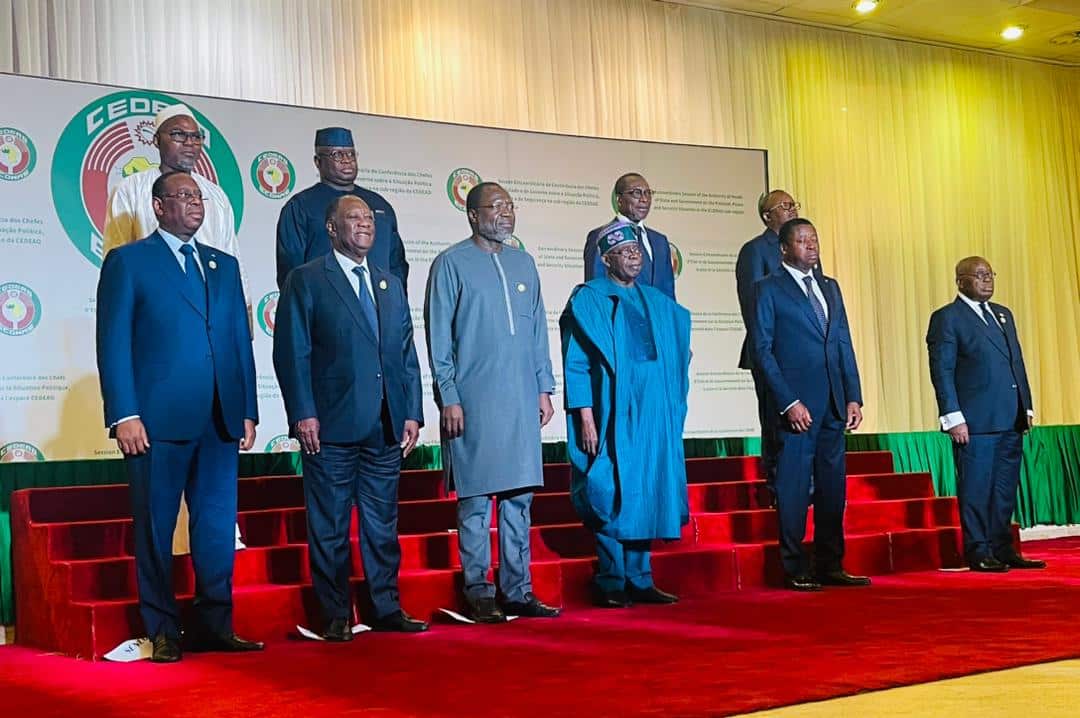Nigeria’s President, Bola Tinubu, currently presides over an Extraordinary Summit at the Aso Rock Villa in Abuja, focusing on the pressing political, peace, and security issues gripping the West African region.
In his capacity as the chair of the ECOWAS Authority of Heads of State, President Tinubu is leading discussions aimed at potentially alleviating sanctions imposed on Burkina Faso, Guinea, Mali, and Niger, which are under military rule.
The summit brings together leaders from the Economic Community of West African States (ECOWAS), a regional bloc comprising 15 member countries with headquarters in Abuja, Nigeria.
The meeting follows the announcements by the military juntas in Burkina Faso, Mali, and Niger in late January, declaring their withdrawal from ECOWAS due to grievances over what they perceive as “illegal sanctions” harming their populations.
These nations accuse ECOWAS of yielding to external pressures, diverging from the interests of West African citizens.
In response to political unrest in Mali and Burkina Faso, and recent turmoil in Niger, ECOWAS had imposed stringent measures, including the suspension of commercial and financial transactions and freezing of assets.
Although ECOWAS protocol mandates a one-year notice for member states intending to withdraw, the juntas declared immediate secession, marking a significant moment for the bloc, reminiscent of Mauritania’s withdrawal in December 2000.
Further complicating matters, ministers from Burkina Faso, Mali, and Niger revealed plans on February 15 to establish a confederation, distancing themselves from ECOWAS, though formal exit procedures are yet to be initiated.
The ongoing summit in Abuja is crucial as it seeks to tackle these unprecedented challenges, exploring pathways for reconciliation and restoring peace and stability across the West African region.


